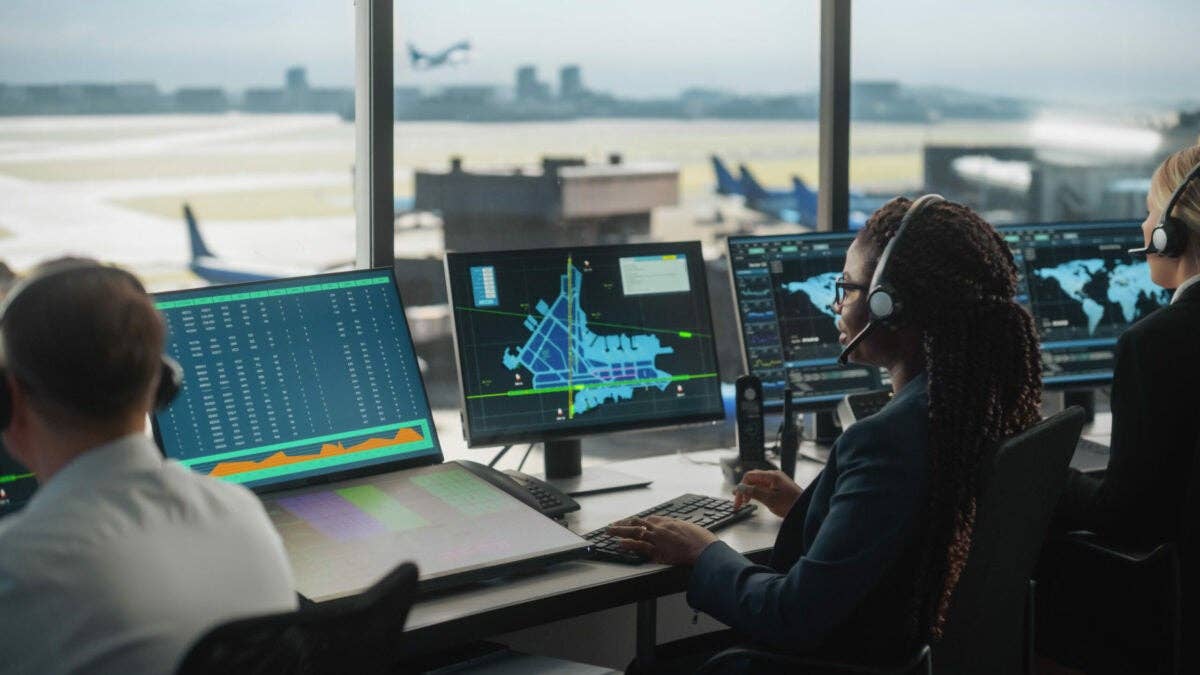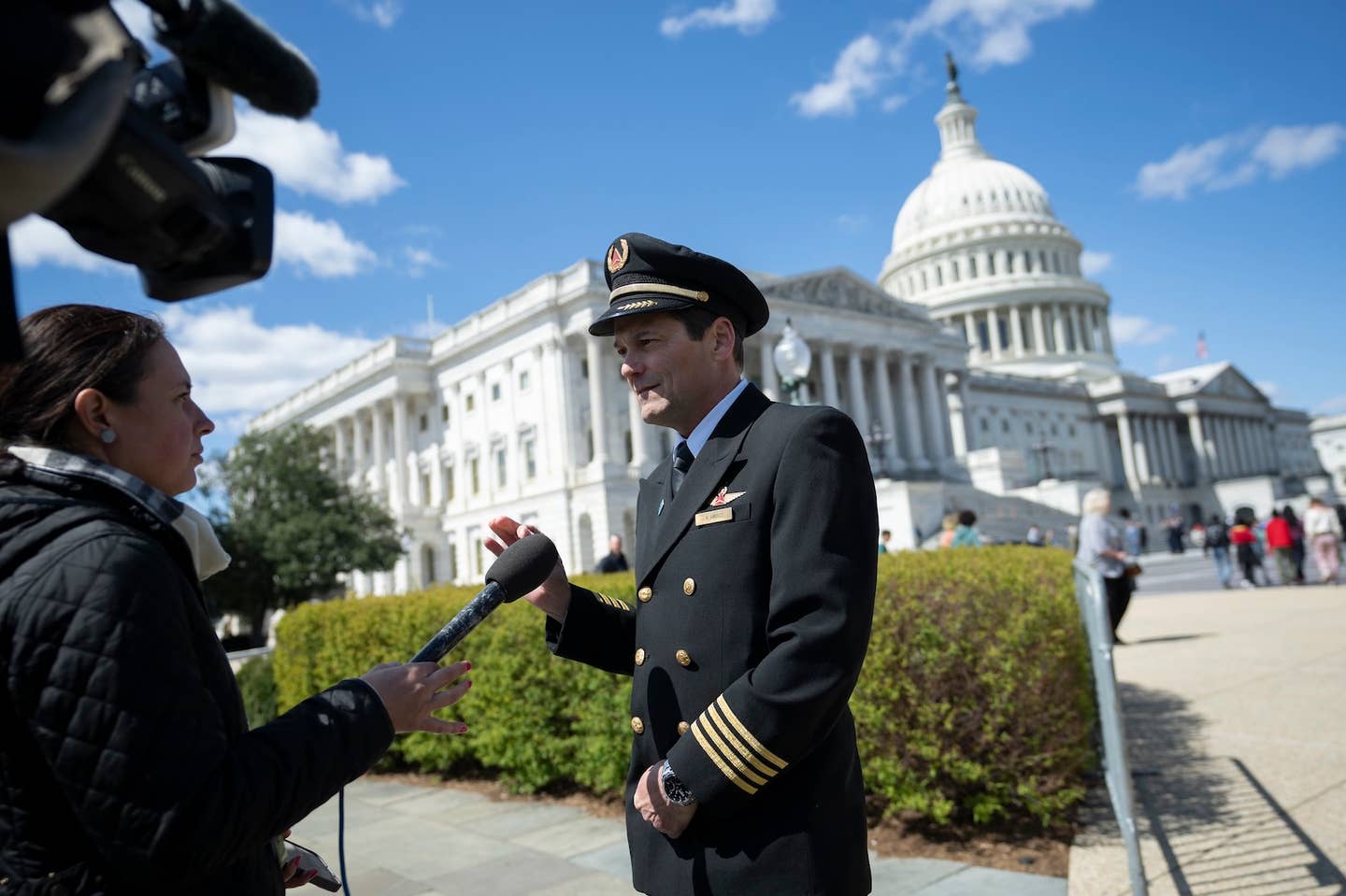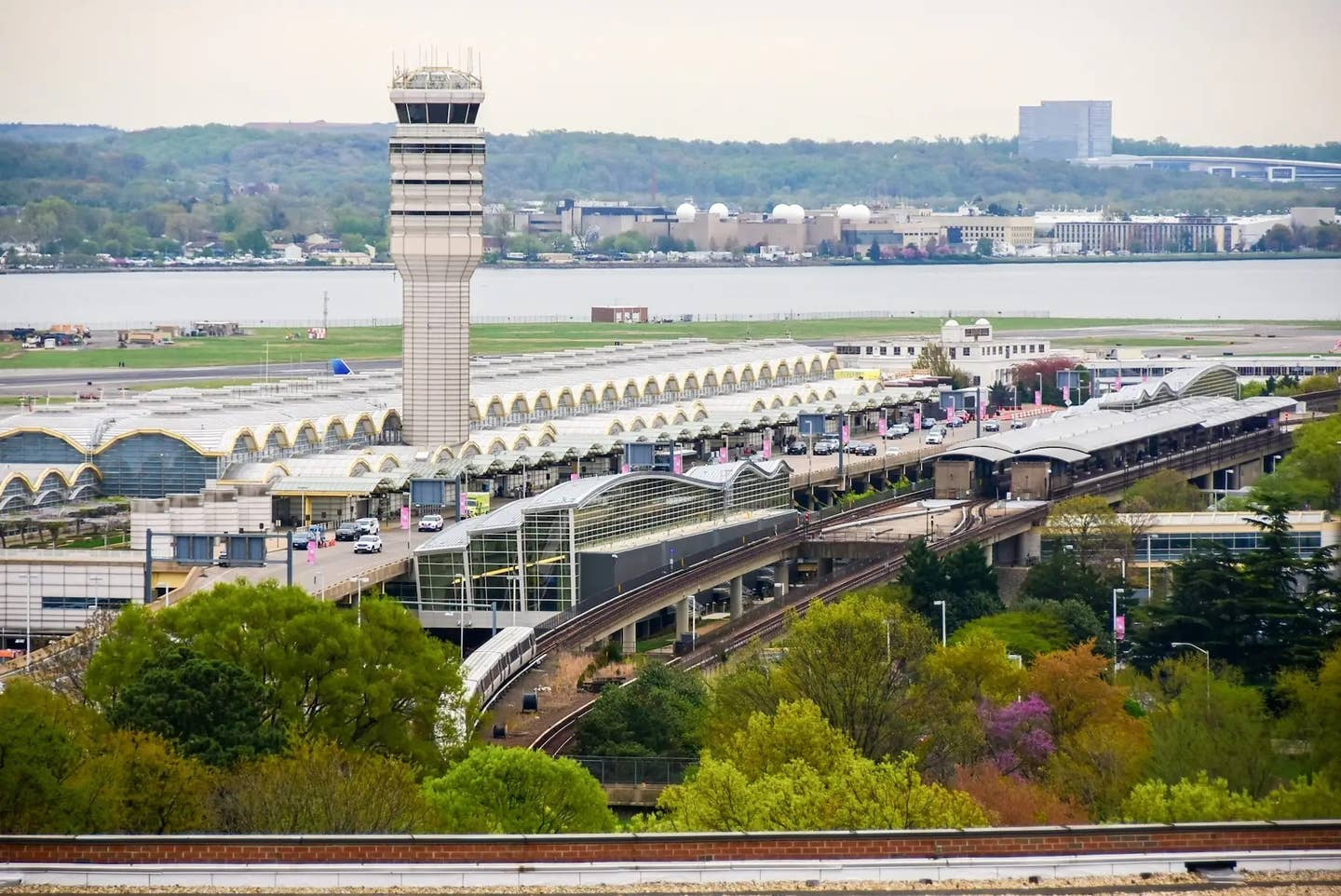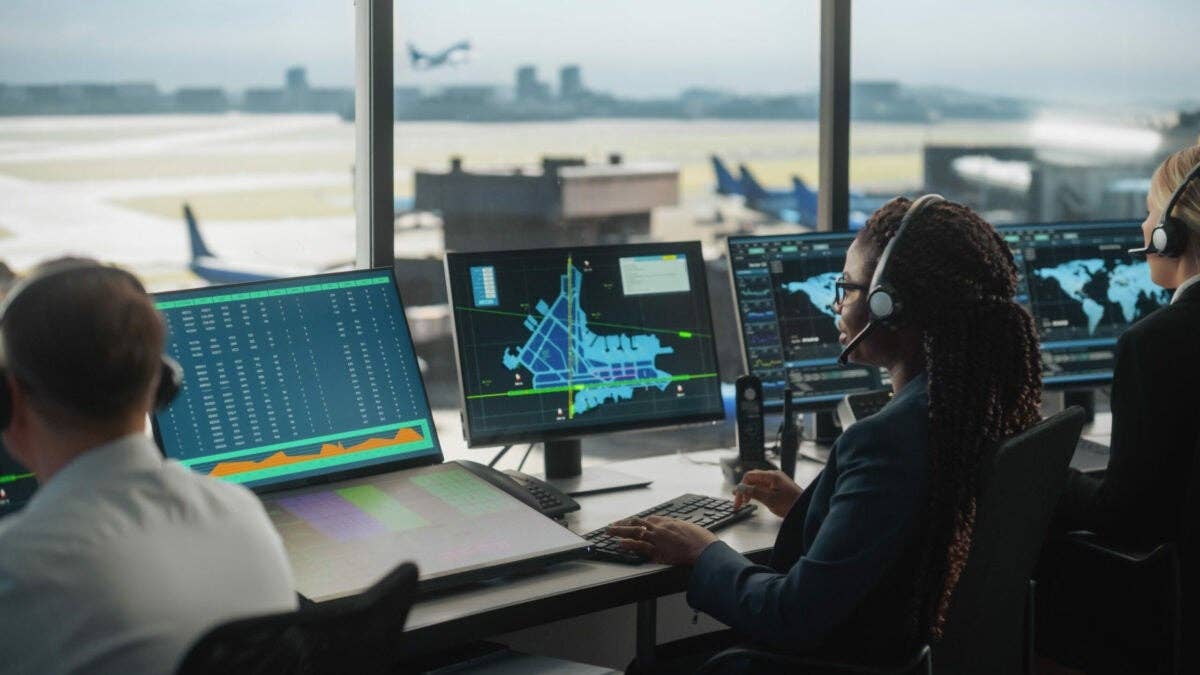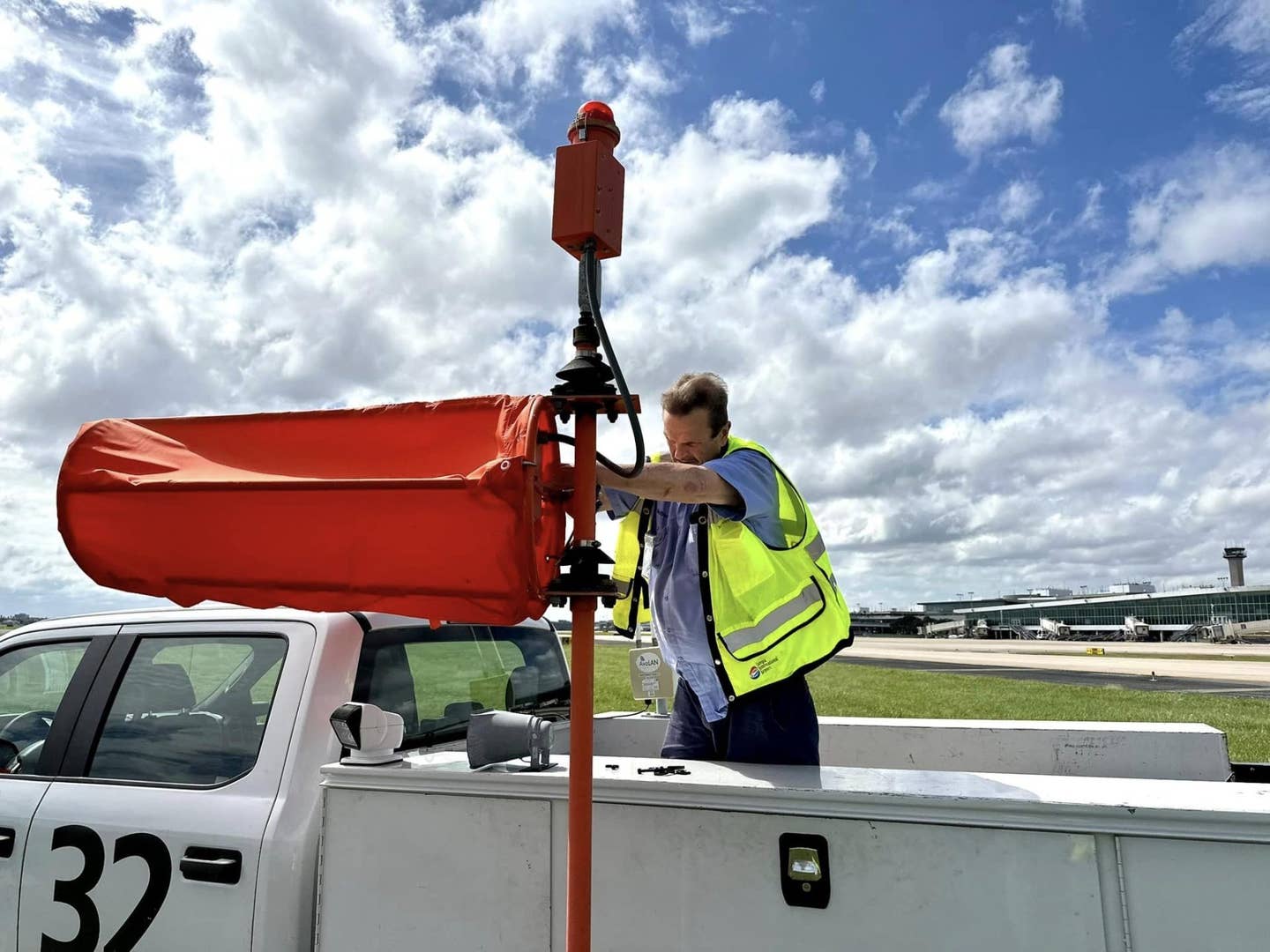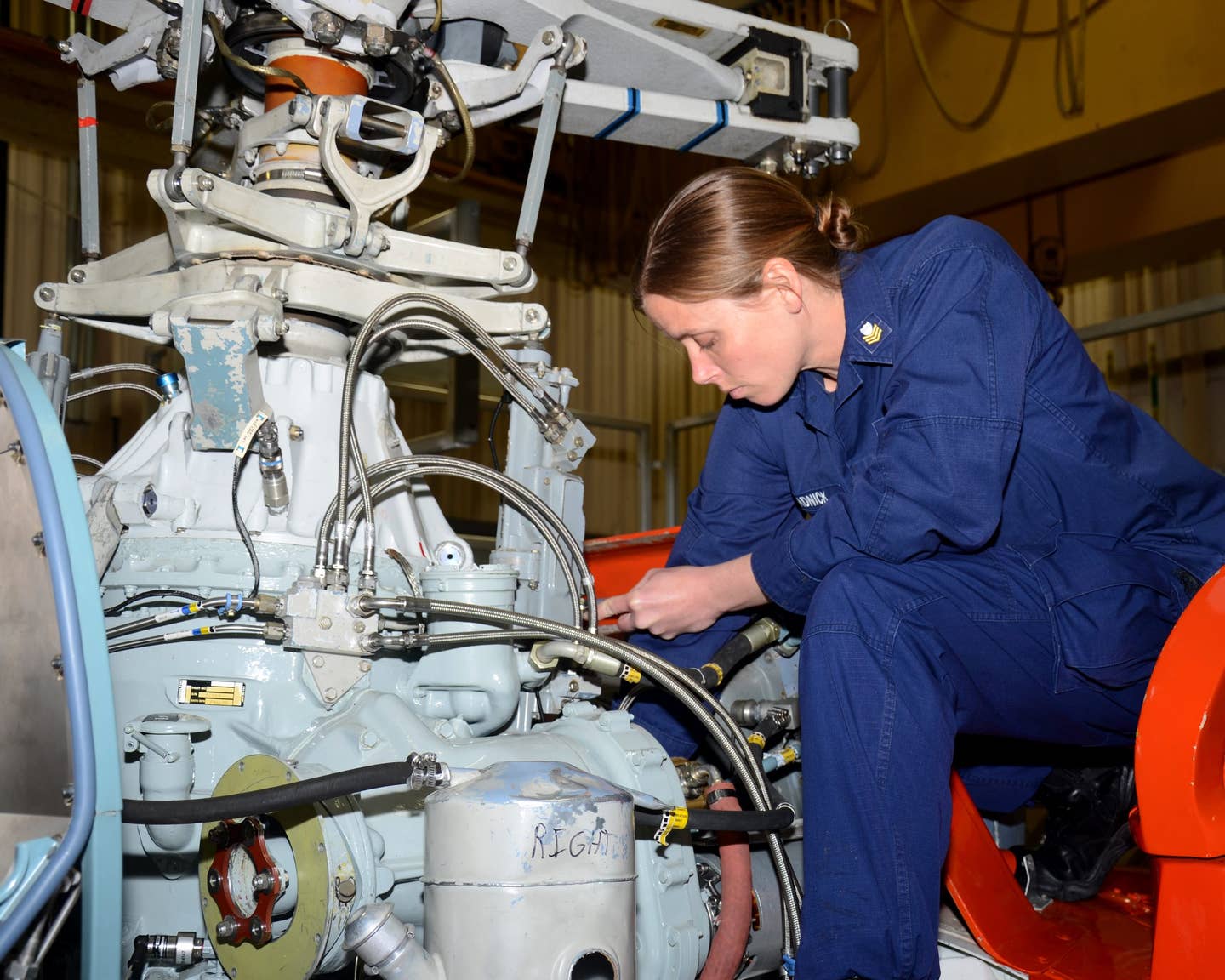
Military AMT training, as this U.S. Coast Guard instructor provides, can count toward civilian certifications. Flying
Aviation Maintenance Technician
Aviation maintenance technicians maintain, service, repair and overhaul airframes, power plants, avionics and aircraft instruments. Boeing projects 600,000 AMTs will be needed by the airline industry alone over the next two decades. Some 170 educational institutions offer two-year or four-year training programs qualifying graduates for FAA airframe and power-plant certification, the gateway to top AMT jobs. Military experience can also count toward certification. The median annual salary for AMTs last year was more than $58,000, according to the Bureau of Labor Statistics, with most technicians earning between $46,000 and $71,000 annually; those with airframe and power-plant certification and four-year degrees typically earn more. Learn more about AMT careers here.
Airline Pilot
Rising global demand for air travel is creating a shortage of airline pilots. More than 550,000 new airline pilots will be needed by 2034, according to industry projections. More than 250 colleges and universities in the U.S. offer the FAA-approved training needed for an airline pilot job in addition to multiple fast track, zero time to ATP training organizations like ATP Flight School. Additionally, within the past year, a number of airlines have begun pre-hiring qualified candidates at these institutions and providing tuition assistance. The Bureau of Labor Statistics reports median pay for airline pilots was more than $136,000 in 2015, but experienced captains at major airlines can earn well over $200,000 per year. Learn more about educational opportunities for aspiring airline pilots here.
Aviation Safety Inspector
Government aviation safety inspectors ensure the safety and regulatory compliance of aviation facilities, operations, programs and aircraft. Additionally, FAA safety inspectors certify pilots and flight instructors, and National Transportation Safety Board inspectors examine accidents. Airlines, maintenance centers and other aviation businesses also employ safety inspectors, as well as aircraft inspectors, who perform similar services. A wave of retirements of government inspectors, combined with an increasing emphasis on aviation safety initiatives in the private sector (SMS, IS-BAO, etc.), is creating high demand for these safety specialists. Aviation safety inspector positions typically require prior experience as a professional pilot or maintenance technician, and federal employees can earn from about $66,000 to $153,000 annually, with a median salary for FAA inspectors of about $93,000. The median for all transportation inspectors is about $71,000 per year, according to the Bureau of Labor Statistics. Learn more about FAA aviation safety inspector careers here.
Certified Flight Instructor
The airline pilot shortage has created demand for certified flight instructors, who teach fledgling aviators how to fly and prepare them for the examinations required to earn their pilot licenses and ratings. Underscoring the growing need, the CFI ranks have already climbed more than 11.5 percent over the past decade. New CFIs typically earn from about $33,000 to $40,000 per year, which compares favorably with the starting pay for a regional airline pilot of $20,000 to $25,000. Salaried positions for supervising CFIs at FAA-approved training providers can range from about $55,000 to more than $70,000 annually. Learn more about CFI jobs here.
Aero IT Specialist
With Wi-Fi and connectivity solutions becoming standard equipment on commercial and business aircraft, the aviation industry needs experts in onboard networking, satcom and Internet systems. Aero IT specialists install, troubleshoot, repair and service onboard connectivity and communication systems. Last year, the first industry certification standard for these professionals, the AeroIT certification, was approved. The median annual salary for all computer and IT occupations was more than $81,000 last year, ranging from about $65,000 to $111,000, and employment in the field is expected to grow 12 percent over the next decade. Training as either an AMT or IT technician provides the background needed to become an aero IT specialist. Learn more about AeroIT certification here.

Sign-up for newsletters & special offers!
Get the latest FLYING stories & special offers delivered directly to your inbox


